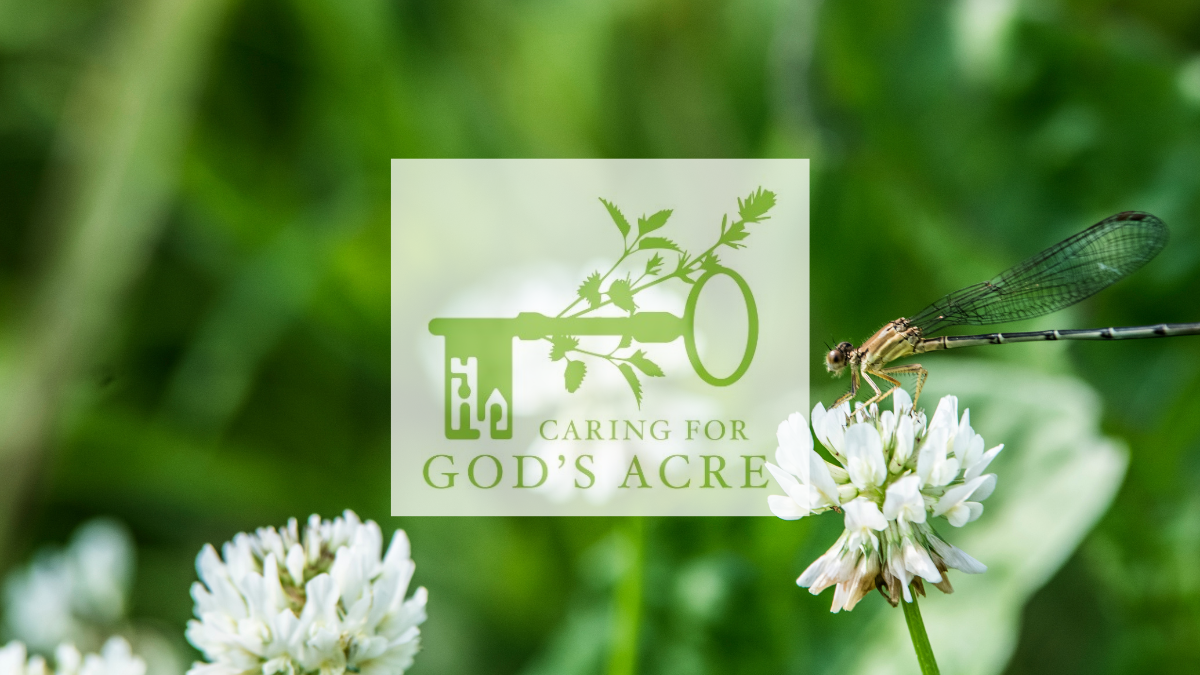
Here Be Dragons!
Churchyards and cemeteries may seem strange places to look for animals which live in streams and ponds but actually they can be very good. Frogs, toads and newts all spend much of their lives out of the water and whilst dragonflies are aquatic during their larval stage it is the adult, flying insect that we see throughout the spring and summer. Whilst dragonflies will be returning to water to lay eggs, they can be seen cruising quite far away.
Dragonfly larvae may live for several years within water but for only a few weeks as a flying adult. It’s not clear why they are called dragonflies, but other old names include Devil’s Riding Horse and Devil’s Darning Needle! They are an ancient type of insect with giant dragonflies found in the fossil record, dating from the Carboniferous era. Some fossilized dragonfly species would have had a wingspan of about 70cm.
Adult dragonflies eat smaller insects such as midges and mosquitoes. They can fly fast – reaching 25 to 30 mph with a loud buzzing sound and have excellent eyesight, using their compound eyes to find and catch prey as well as spot potential mates. You may see them basking on a churchyard wall or monument in order to warm up, wait for good weather or finish digesting. Flying takes a lot of energy so they spend much of their time sitting still. If you are both patient and lucky, you may also see predators of dragonflies or the smaller damselflies such as flycatchers and frogs.
One reason that burial grounds are good for dragonflies is that they can be havens for their food – small flying insects. Those managing churchyards, chapel yards and cemeteries rarely if ever use pesticides and there are often areas where these insects can breed, such as long tussocky grass, deadwood and woodland soils with old leaves, bark and humus.
Why not spend some time checking on monuments and see if you can spot any dragonflies. Take a photo of any you see to upload onto the iNaturalist app which will both help you identify them and also make a record so others can see what you’ve found.
All the best,
Diocesan Churchyard Environmental Advisor
www.caringforgodsacre.org.uk - individuals and groups in the diocese receive 20% members discount on all CfGA materials. Use the discount code diomem22
